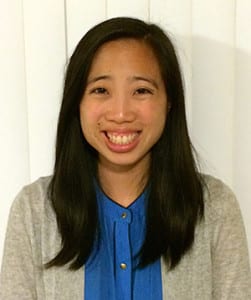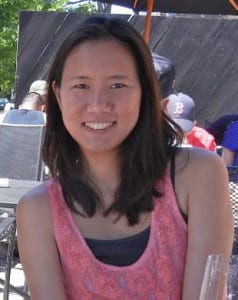
By Andrew Cohen
Laura Lim ’17 and classmate Peggy Ni ’17 extended Berkeley Law’s dominance of the national Milani Disability Law Writing Competition, placing first and third respectively. Lim became the school’s fourth student since 2010 to win the competition, which draws entries from law students across the United States.
Lim sees this trend as a testament to Berkeley Law’s First Year Skills Program—specifically its “strength in training students to research effectively and efficiently, and to write clearly and persuasively,” she wrote in an email. Lim said the program deftly balances guidance and independent work, letting students “experience the brief-writing process on our own while using our professors and teaching assistants as resources.”
Sponsored by Mercer University School of Law in honor of the late Adam Milani, a disability rights advocate and renowned legal scholar, the competition solicits student-written trial or appellate briefs on disability law, theory, or practice. In doing so, it seeks to promote greater interest in disability law and civil rights and to develop quality legal writing skills.
Lim wrote a motion for summary judgment in a mock case on behalf of a high school sports association—which was sued by a deaf high school tennis player for discrimination under Title III of the Americans with Disabilities Act (ADA). The association did not allow the tennis player’s sign language interpreter to interpret during matches, and the player sought to change the policy.
Lim argued that the policy did not constitute discrimination under the ADA because the interpreter’s presence during match play fundamentally altered the sport of tennis by violating its official rules—and by impeding other players’ abilities to focus on the match.
Valuing law over emotion
“One of the toughest challenges was finding case law with facts favorable to my side, and learning how to distinguish less favorable cases from the case at hand,” Lim said. She also had to overcome “the fact that the plaintiff was very sympathetic” and focus on “what the ADA statute and the law actually said about this situation rather than viewing the case from an emotions-based perspective.”

The students wrote their briefs last spring during Berkeley Law’s first-year Written and Oral Advocacy course.
Ni, who has a Ph.D. in Immunology from Washington University in St. Louis, argued for the plaintiff in her summary judgment motion. The winner of this year’s Continuing Education of the Bar Award for Excellence in Legal Research and Writing—which honors Berkeley Law students who excel in the First Year Skills Program—Ni cited the program’s attention to detail as optimal preparation for the Milani Competition.
“By pointing to specific examples when I did something well and thoroughly explaining how I could do other things better,” she said, “my instructors helped me improve my writing so that I could enter the competition with a sophisticated piece.”
Lim raved about the supportive and pragmatic guidance she received from her writing instructor Lucinda Sikes.
“She was so patient in answering all my questions and helping me organize my arguments,” said Lim, who spent two years before law school as a legal assistant for the Oakland law firm Lewis, Feinberg, Lee & Jackson. “Her comments on my drafts were absolutely crucial to my legal writing development. They pointed out ways to strengthen and clarify specific sections to form a cohesive, structurally organized brief.”
Lim added that her teaching assistants provided sharp insights into “how to discern which cases best supported certain arguments, and how to navigate situations in which there weren’t very many strong precedent cases in my favor.”